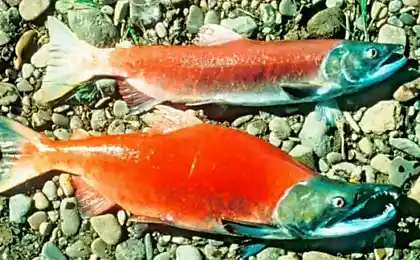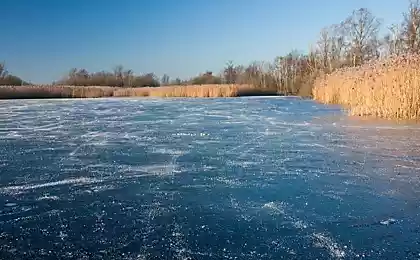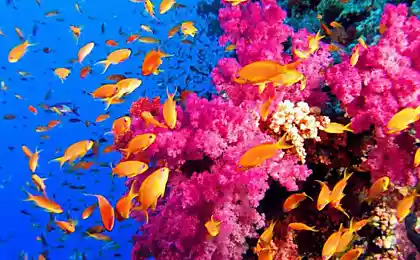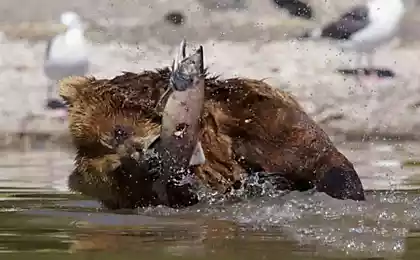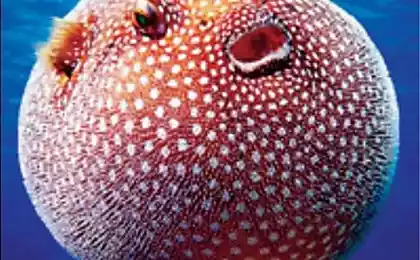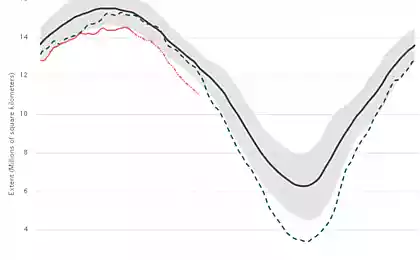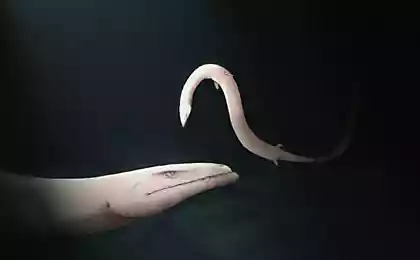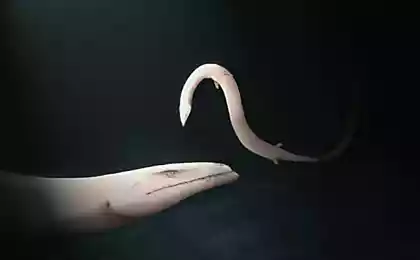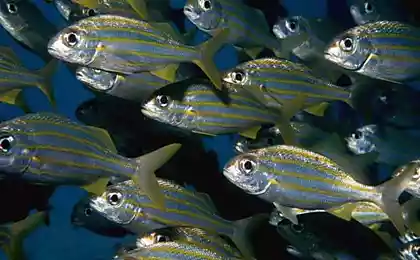700
In notothenioid Antarctic ice fish blood
The fish living in cold waters of the Antarctic ice run cold. Bukvalno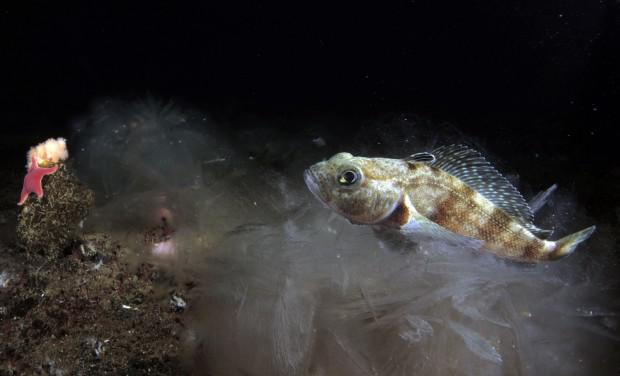
to survive in the coldest climates on Earth in Antarctic fish notothenioid blood freezing, there is a special protein that binds the ice crystals and prevent their growth in order not to give the fish to freeze. Paradoxically, the new study found that the same protein prevents ice crystals melt, which leads to the accumulation of ice in the veins of the fish during the year, harming their health.
The fact that many Antarctic fish have ice in his veins, has long been known, but scientists do not know how to ice fish excreted from the body. During the winter, the ice builds up in the spleen, and the researchers suggested that it melts in the warm summer waters.
To test their theory, the researchers took representatives of several species of fish in the winter in the waters of McMurdo Sound in southern Antarctica and tested them in the lab. They are heated to body temperature of fish, higher than expected melting point of ice, but the crystals never melted. That is, even if it is overheating ice remained in the solid state.
Then the scientists caught fish in the summer in McMurdo Sound, and 90% of the fish caught were ice crystals in the blood, even though the water temperature. After studying data on water temperature in the strait in a decade, scientists have discovered that it rarely reaches the melting of ice crystals in the blood of Antarctic fish. However, the researchers concluded that the ice in the blood of fish remains almost throughout their lives.
Ice crystals trapped in the tissues and organs of fish, may cause harmful inflammatory reactions and block narrow capillaries - in the same way as asbestos destroys the lungs of people. At this stage, researchers are not sure whether there are adverse health effects of fish because of the ice in the blood. However, they do believe that these fish were to develop mechanisms to protect against the accumulation of ice.
via factroom.ru

to survive in the coldest climates on Earth in Antarctic fish notothenioid blood freezing, there is a special protein that binds the ice crystals and prevent their growth in order not to give the fish to freeze. Paradoxically, the new study found that the same protein prevents ice crystals melt, which leads to the accumulation of ice in the veins of the fish during the year, harming their health.
The fact that many Antarctic fish have ice in his veins, has long been known, but scientists do not know how to ice fish excreted from the body. During the winter, the ice builds up in the spleen, and the researchers suggested that it melts in the warm summer waters.
To test their theory, the researchers took representatives of several species of fish in the winter in the waters of McMurdo Sound in southern Antarctica and tested them in the lab. They are heated to body temperature of fish, higher than expected melting point of ice, but the crystals never melted. That is, even if it is overheating ice remained in the solid state.
Then the scientists caught fish in the summer in McMurdo Sound, and 90% of the fish caught were ice crystals in the blood, even though the water temperature. After studying data on water temperature in the strait in a decade, scientists have discovered that it rarely reaches the melting of ice crystals in the blood of Antarctic fish. However, the researchers concluded that the ice in the blood of fish remains almost throughout their lives.
Ice crystals trapped in the tissues and organs of fish, may cause harmful inflammatory reactions and block narrow capillaries - in the same way as asbestos destroys the lungs of people. At this stage, researchers are not sure whether there are adverse health effects of fish because of the ice in the blood. However, they do believe that these fish were to develop mechanisms to protect against the accumulation of ice.
via factroom.ru
20 facts about the movie "Pulp Fiction", which you did not know
"The effect antropotsebo" explains how our minds can destroy the world




